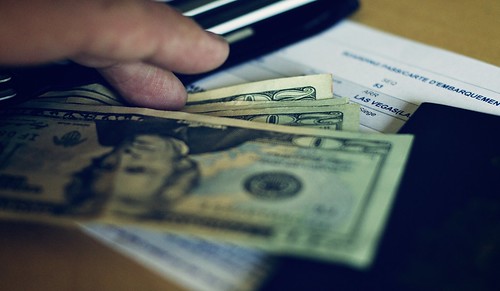Take some time each day to stop thinking about your bankruptcy. It can seem like a thought you cannot get out of your head, but it is important to step away from the situation before you become too upset. Not only that, but removing it from your thoughts allows you to bring a fresher, more optimistic perspective to the table when you take up the subject again.
Don't charge up your credit cards knowing you are going to file bankruptcy, if you have already started the process or made recent purchases for luxury items. While this type of purchasing is still part of your "�debt,' it is likely that you'll still be responsible for repaying the money for those items. In most cases, what you are attempting to do is obvious.
Remember you still have to pay taxes on your debts. A lot of people don't realize that even if their debts are discharged in the bankruptcy, they are still responsible to the IRS. The IRS usually does not allow complete forgiveness, although payment plans are common. Make sure to find out what is covered and what is not.
A useful tip for those thinking about using personal bankruptcy as a way out of their financial difficulties is to exercise great care when choosing an attorney. By selecting a practitioner who specializes in bankruptcy and who has handled a large number of such cases, it is possible to ensure the very best outcome and the greatest likelihood of forging a positive financial future.
Before meeting with a lawyer, start compiling all of the documentation and paperwork you will need to provide an accurate picture of your finances. Gather six months' worth of pay stubs, bank statements, bills and credit card statements. Create a list of property and assets that you own. Having this entire information ready from the beginning can save you trouble when it's time to file.
Consider filing Chapter 13 rather than Chapter 7, if you are facing foreclosure. A Chapter 13 bankruptcy allows you to create a restructured payment plan which includes your mortgage arrears. This will allow you to get your mortgage payments current, so that you won't lose your home. Chapter 13 doesn't require you to turn over property, so you don't have to worry about the homestead exemption, either.
As you can see from the above article, bankruptcy doesn't just happen. Many steps must be taken, and they must be completed properly. If you use the advice from this article, everything will be properly taken care of when you file for bankruptcy.

No comments:
Post a Comment